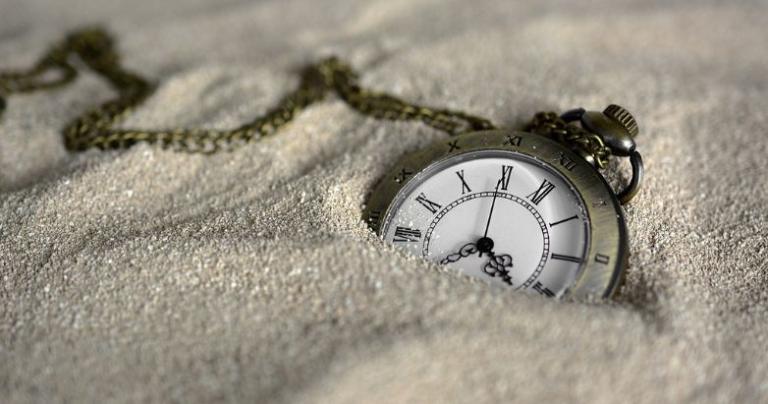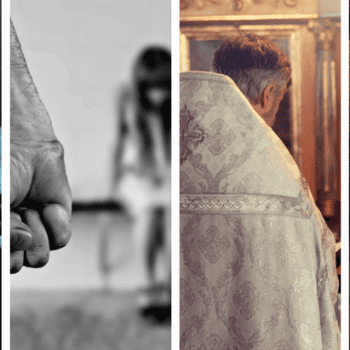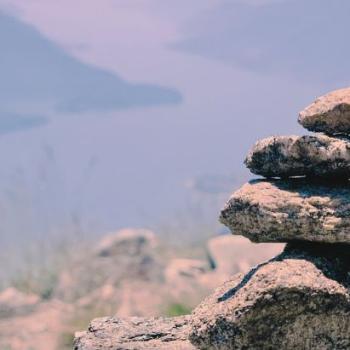
Ram Dass, the author of Be Here Now, made a surprising confession a few years before his passing. He had been so focused on living in the present moment that he had neglected to plan for the future. When he fell ill, he had to ask his followers and well-wishers for assistance. While embarrassing, the admission proved to be a valuable teaching moment. It underscored a paradox that we all struggle with, namely that life is now and life is long.
Because each gives rise to specific philosophies and ways of living, it’s worth exploring the two more closely to see if we can find balance.
Life is Now
As I see it, there are three primary ways to approach the philosophy of the present moment: mindfulness, nondualism, and sensuality.
The Mindfulness of Now
Bringing attention to the present moment is at the core of most mindfulness practices. The body is used as an anchor for the mind. From a spiritual standpoint, the practice is based on simplified Buddhism and Yoga, meant primarily for stress reduction.
The Nonduality of Now
Nonduality refers to an ever-present ground of being that has two primary characteristics; it is always present and never changes. It was present before the Big Bang and represents the original state of the universe. The philosophy of nonduality emerged from Vedanta teachings and was reinforced by Adi Shankara, an 8th-Century Vedic scholar and educator. The nondual approach is also called transcendental because it transcends concepts of duality.
The Sensuality of Now
Sensuality refers to the senses. A traditionally pagan approach—often quoted in Iceland where I grew up (as in, “eat, drink and be merry”)—this version of the ‘now’ philosophy exclaims, “Why wait? Life is now. Smell the roses, drink the wine, and explore your passions. Now is all you have.”
Now is Not Just Now
As this brief overview illustrates, now is not just now. Each of these philosophies would result in different actions and, ultimately, different lives. To complicate things, sometimes a nondual teacher espouses the joys of the eternal now, yet students interpret the teachings as either the pagan (earth-focused) or mindful (stress-reduction) versions.
Gaining clarity about what ‘now’ means to you will be helpful if you want to live there.
Life is Long
Living a good life requires planning. This may seem like a simple philosophy, but it’s essential when it comes to education, family, finances, and health. One of my favorite motivators, Brian Tracy, often said, “Failing to plan is planning to fail.” This doesn’t mean that everyone who doesn’t plan will fail, but they will likely need to rely on someone else’s ability to plan. This could be the education system, a boss, a family member, or, depending on where you live and how you access health services, an insurance or government agency. Even in monasteries, there is always someone who plans and worries about the money.
Mindful Striving
I erred on the side of Ram Dass most of my life by trying to live in the present moment. Sadly, at fifty years old, I am now meeting the fate of someone who didn’t plan well. Facing reality is hard, but it is giving me an opportunity to go back to the drawing board and plan the rest of my life while staying connected to the mindfulness and nonduality of the now. I will need to get creative on several fronts because I am coming late to the planning game. I call my approach “mindful striving.” This term incorporates mindfulness, which keeps me grounded in the present, and striving, which entails putting in great effort to achieve my goals.
Find Your Balance
Having observed myself and others for half a century, I’ve found that those who obsess over the future often forget to live in the moment. They sacrifice “what is” for “what could be.” In some cases, lives are tragically cut short before the imagined future can even begin. I guess that extreme is what I rebelled against by attempting to live more in the present moment, first sensually, then later mindfully and nondually.
Yet, I’ve also seen the opposite, people like myself and Ram Dass, who fail to plan for the future and have to seek help or pay for the lack of preparation in some other way. My point is that both approaches to life have merit, but living in the extremes rarely produces the result that one seeks. Finding a middle ground or a balance is perhaps the most practical way to approach the paradox of a long life that is lived in every passing moment.
Gudjon Bergmann
Amazon Author Profile
Relevant books by GB:
- Monk of All Faiths: Inspired by The Prophet (fiction)
- Spiritual in My Own Way (memoir)
- Co-Human Harmony: Using Our Shared Humanity to Bridge Divides (nonfiction)
- Experifaith: At the Heart of Every Religion (nonfiction)
- Premature Holiness: Five Weeks at the Ashram (novel)
- The Meditating Psychiatrist Who Tried to Kill Himself (novel)












